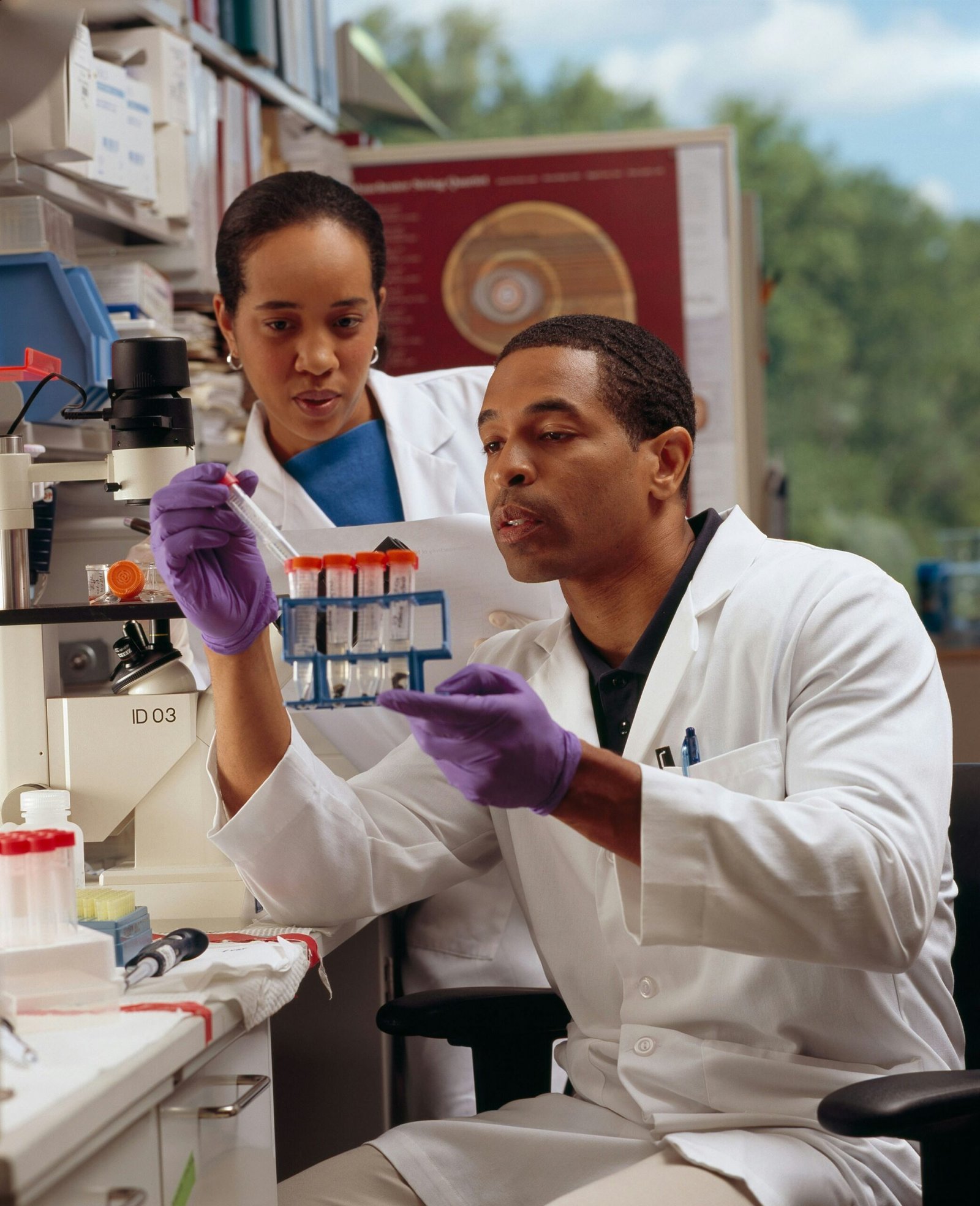
Biotech startups are pivotal entities within the dynamic field of biotechnology, playing a crucial role in advancing medical and technological innovations. These young companies focus on developing novel biotechnological solutions, ranging from cutting-edge pharmaceuticals to groundbreaking diagnostic tools and therapies. Their significance cannot be understated, as they often operate at the frontier of science, driving progress with agility and boldness that larger, more established firms might lack.
In the broader context of biotechnology and healthcare, biotech startups are essential for several reasons. Firstly, the biotech industry has experienced exponential growth in recent years, spurred by advancements in genomics, personalized medicine, and biomanufacturing. This growth creates a fertile ground for startups to thrive, as they can swiftly adapt to emerging trends and rapidly evolving scientific knowledge. Nevertheless, these young firms also face unique challenges, including securing funding, navigating regulatory landscapes, and transitioning from research to commercialization.
Opportunities for biotech startups abound, particularly in addressing unmet medical needs and improving health outcomes. Innovations spearheaded by these companies can lead to the development of more effective and targeted treatments, ultimately benefiting patients and healthcare systems alike. Furthermore, the entrepreneurial spirit inherent to startups fosters a culture of innovation, where risk-taking and pioneering approaches are encouraged, enabling significant breakthroughs.
The historical background of biotech entrepreneurship is marked by key moments and discoveries that have shaped today’s innovative landscape. For instance, the advent of recombinant DNA technology in the 1970s laid the groundwork for genetic engineering, while the sequencing of the human genome at the turn of the millennium unlocked new possibilities in personalized medicine. These milestones underscore the importance of continuous innovation and the transformative potential of biotech startups, which remain at the forefront of scientific exploration and application.
Key Areas of Innovation in Biotech Startups
Biotech startups are at the forefront of transformative innovations, significantly advancing various fields. One of the key areas is genomics, where companies like 23andMe are pioneering personalized genetic testing. By decoding individuals’ genetic information, these startups are enabling personalized medicine, which tailors medical treatment to the individual characteristics of each patient. Genomics technologies have the potential to revolutionize preventive healthcare by identifying genetic predispositions to certain diseases, facilitating early intervention and more effective treatments.
Another critical area is personalized medicine. Startups like Foundation Medicine are developing comprehensive genomic profiling tests that help oncologists understand the unique molecular characteristics of a patient’s cancer. Personalized medicine not only improves the accuracy of diagnoses but also enhances the effectiveness of treatments, leading to better patient outcomes and potentially reducing healthcare costs in the long run.
In biotechnology agriculture, companies such as Indigo Agriculture are utilizing microbial technologies to enhance crop resilience and productivity. By leveraging nature’s biological processes, these startups aim to reduce reliance on chemical fertilizers and pesticides, fostering sustainable agricultural practices. These innovations address significant global challenges such as food security and environmental sustainability, contributing to a healthier planet.
Biopharmaceuticals are another area where biotech startups are making remarkable progress. Innovators like Moderna have developed messenger RNA (mRNA) technology, which played a pivotal role in the development of COVID-19 vaccines. These advancements in biopharmaceuticals are not only accelerating the pace of vaccine development but also opening new avenues for the treatment of various diseases, including genetic disorders and cancers.
The field of medical devices is also experiencing groundbreaking innovations from startups such as Butterfly Network, which has created portable ultrasound devices. These devices significantly improve the accessibility of diagnostic imaging, especially in remote or underserved regions. Enhanced medical devices play a crucial role in early diagnosis and monitoring of health conditions, thereby improving patient care and outcomes.
Collectively, these innovations by biotech startups are addressing critical global health and environmental challenges. By pushing the boundaries of science and technology, these pioneering companies are not only shaping the future of biotechnology but also contributing to a better world.
Challenges and Opportunities for Biotech Startups
Biotech startups operate in a dynamic environment where opportunities and challenges coexist. One of the primary hurdles these startups face is securing adequate funding. The research and development phase in biotechnology can be capital-intensive, and attracting investors who understand the long gestation period for returns can be challenging. Venture capital firms and angel investors are essential bridges in this domain, often providing the necessary financial support and industry connections.
Regulatory hurdles represent another significant challenge. Biotech companies are subject to stringent regulations and approval processes, which vary across different regions. Navigating these complex regulatory landscapes demands substantial preparation, strategic planning, and often, the establishment of dedicated regulatory affairs teams to ensure compliance.
Competition is fierce in the biotech sector, with numerous startups and established firms vying for breakthroughs and market share. This competitiveness makes it crucial for startups to differentiate themselves through unique value propositions and innovative solutions. Intellectual property protection also becomes vital, ensuring that startups can safeguard their technological advancements and competitive edge.
Technological complexities further add to the challenges. The integration of cutting-edge technologies such as artificial intelligence, genomics, and bioinformatics requires specialized expertise and substantial investment. However, those who successfully leverage these technologies can achieve significant innovations and advancements in healthcare solutions.
Despite these challenges, biotech startups are presented with numerous growth opportunities. Advancements in technology and research provide a fertile ground for innovation. Collaborative partnerships with research institutions, pharmaceutical giants, and other biotech firms enable the sharing of knowledge, resources, and risk. Strategic alliances can significantly enhance a startup’s capacity to navigate complexities and accelerate development processes.
Moreover, the increasing investment in the biotech sector reflects its potential for substantial returns. The rising global demand for innovative healthcare solutions, driven by an aging population and prevalent chronic diseases, creates a burgeoning market for biotech innovations. Startups that can seamlessly integrate advanced research and respond to evolving healthcare needs are well-positioned to lead the next wave of biotech innovation.
The Future of Biotech Startups: Trends and Predictions
The trajectory of biotech startups is poised for transformative advancements, driven by a synergy of emerging technologies and scientific disciplines. One of the most significant trends shaping this future is the incorporation of artificial intelligence (AI) and machine learning (ML). These technologies are revolutionizing the way biotech companies approach drug discovery, personalized medicine, and diagnostics. By analyzing vast datasets, AI and ML algorithms can uncover patterns and insights that would be impossible for human researchers to discern, accelerating the pace of innovation and reducing the time and cost associated with bringing new therapies to market.
Another notable trend is the rise of digital health initiatives. Biotech startups are increasingly leveraging digital platforms to develop innovative healthcare solutions, ranging from wearable technology that monitors vital signs to telemedicine applications that broaden access to specialist care. The integration of biotechnology with digital health tools is creating new opportunities for real-time patient monitoring, early disease detection, and more tailored treatment plans, thereby enhancing patient outcomes and promoting preventative care.
The convergence of biotechnology with other scientific fields, such as nanotechnology and synthetic biology, is also propelling the next wave of innovation. This interdisciplinary approach is enabling startups to develop novel solutions that address some of the most pressing challenges in medicine, agriculture, and environmental sustainability. For example, advances in synthetic biology are paving the way for the creation of engineered organisms that can produce biofuels, degrade plastic waste, or even combat climate change.
As these innovations progress, societal impacts and ethical considerations will become increasingly prominent. The rapid advancement of biotech solutions raises important questions about data privacy, genetic modification, and equitable access to new therapies. Regulatory frameworks will need to evolve to ensure that these technologies are deployed safely and ethically, balancing the potential benefits with the need to protect public health and individual rights.
Insights from industry experts and thought leaders highlight a future where biotech startups continue to drive groundbreaking discoveries and applications. They envision a biotech landscape marked by collaborative efforts across sectors, with startups playing a crucial role in translating scientific breakthroughs into real-world solutions. Despite the challenges, the outlook is optimistic, with the potential for these innovations to significantly improve human health, foster sustainable development, and address global challenges in unprecedented ways.










